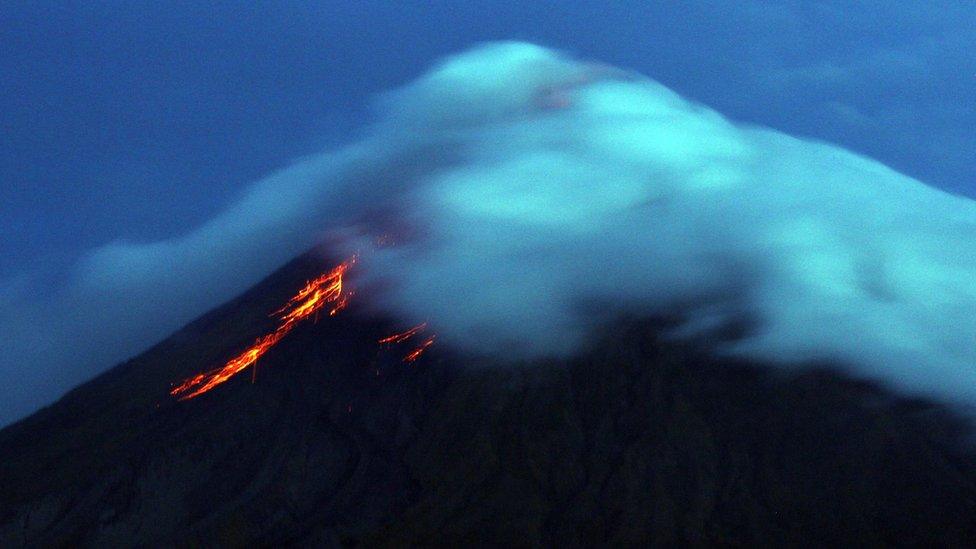Mount Mayon volcano: Philippines fears violent eruption
- Published
Phone footage shows Mount Mayon's huge ash cloud
The Philippines raised the alert level at its most active volcano, Mount Mayon, on Monday after fresh activity.
Mayon has been spewing lava and a cloud of ash since 13 January, forcing more than 40,000 residents to flee their homes in the central province of Albay.
Authorities raised the alert level to four on a scale of five because a hazardous and violent eruption is expected within days.
An 8km (five mile) exclusion zone has been put in place around the volcano.
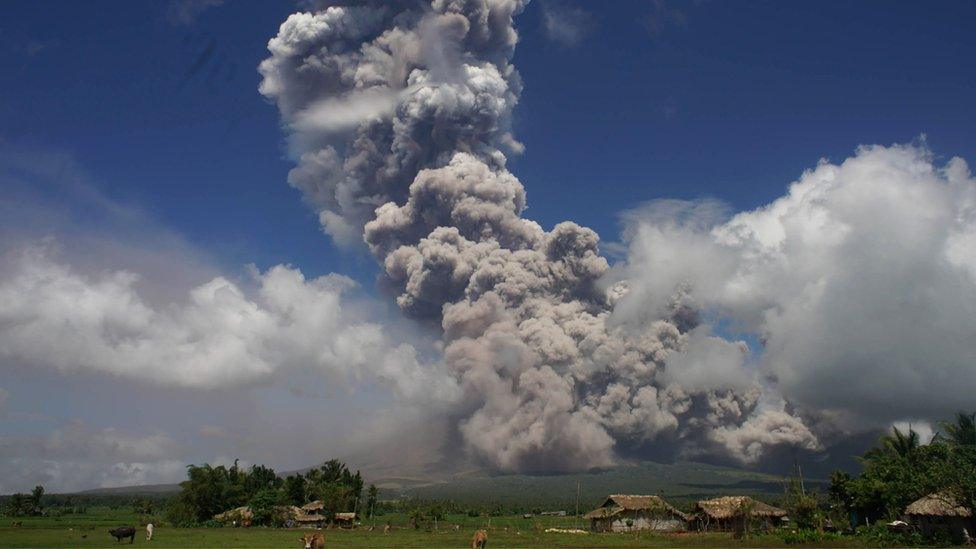
Mayon, a near-perfect cone, rises 2,460 metres
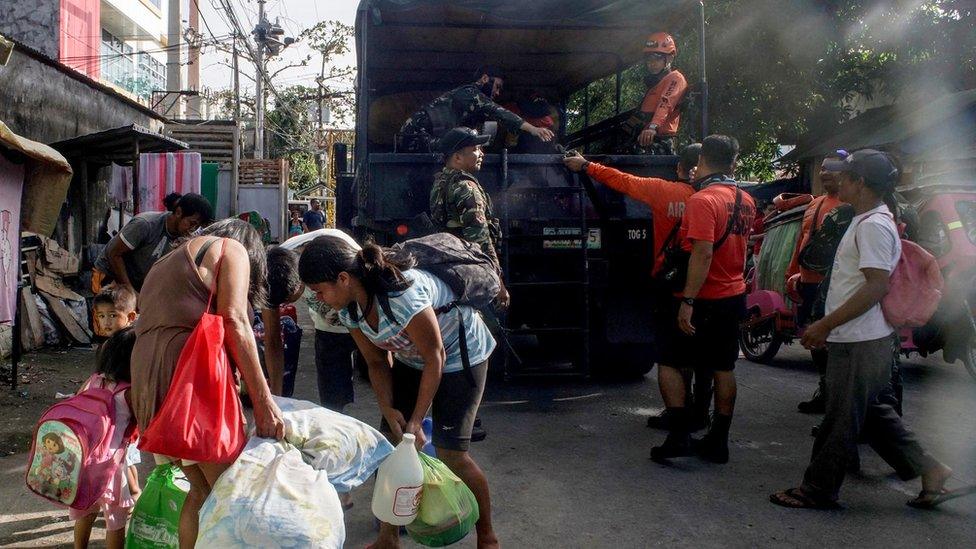
Albay province has run out of emergency funds, according to the provincial governor
Authorities have shut schools and urged residents to remain indoors, as the volcano's huge plume of smoke now reaches 10km into the sky.
Albay province has run out of emergency funds, said provincial governor Al Francis Bichara, and more people would be evacuated once federal financial help arrived.
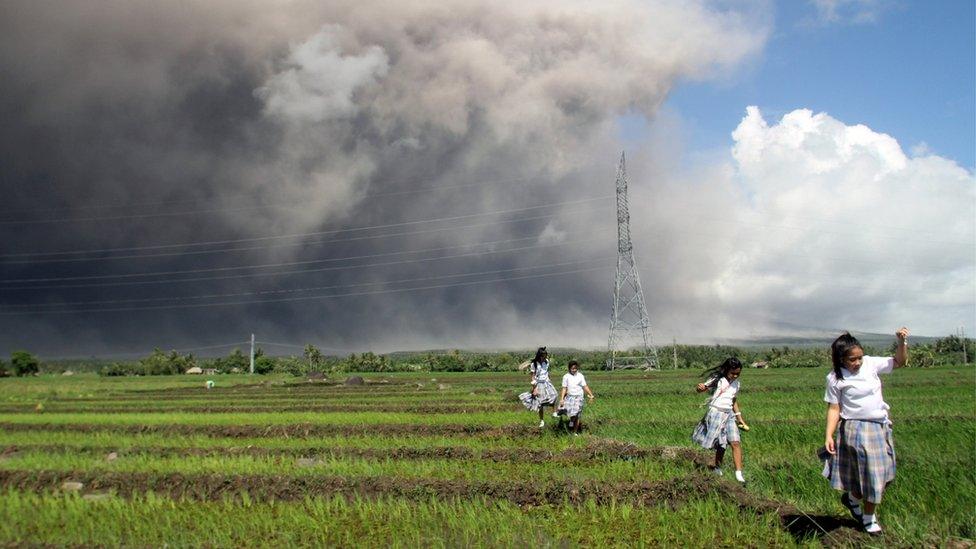
Authorities have shut schools and urged residents to remain indoors
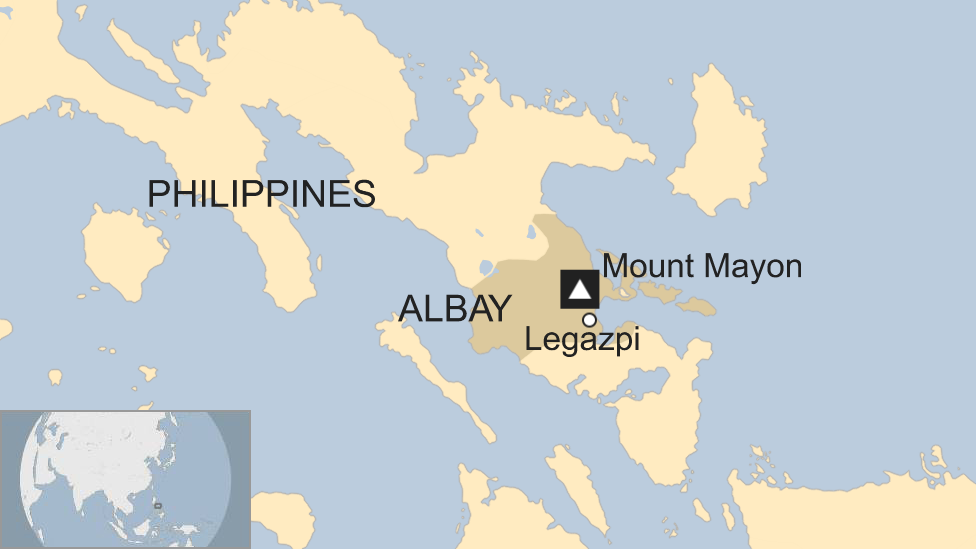
"In some areas... it's already zero visibility, especially along the foot of the volcano," he told CNN Philippines, adding that strong winds could carry ash to distant towns.
Fine ash and sand fell on Legazpi, a city of about 200,000 people, and nearby areas after a recent explosion turned day into darkness, forcing motorists to switch on their lights and use windscreen wipers, Agence France-Presse reported.
"I had to stop because my helmet had filled up with ash," Girlie Panesa, 39, told AFP as she parked her motorcycle by the roadside in the nearby town of Ligao.
This video has been removed for rights reasons
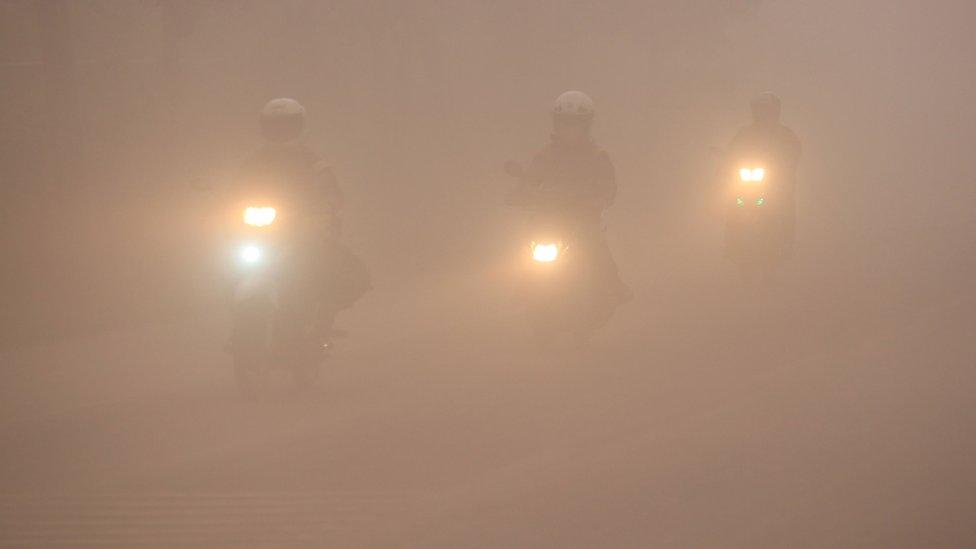
Mount Mayon is the country's most volatile volcano, with 51 eruptions in recorded history
The Philippine Institute of Volcanology and Seismology, which monitors the island nation's 22 active volcanoes, expects the explosions to continue.
"There is a possibility of a dangerous eruption, the start of which we are already witnessing," the institute's director, Renato Solidum, told a news conference in the nation's capital Manila.
Mayon, a near-perfect cone, is 2,460m (8,070ft) high and last erupted in 2014. In 1814 it covered the town of Cagsawa, killing more than 1,000 people.
- Published16 January 2018
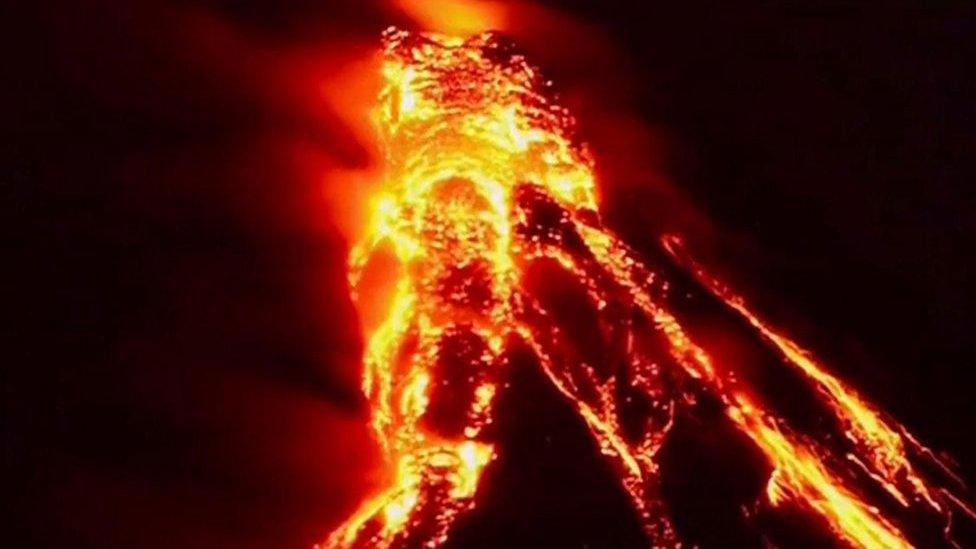
- Published18 September 2014
